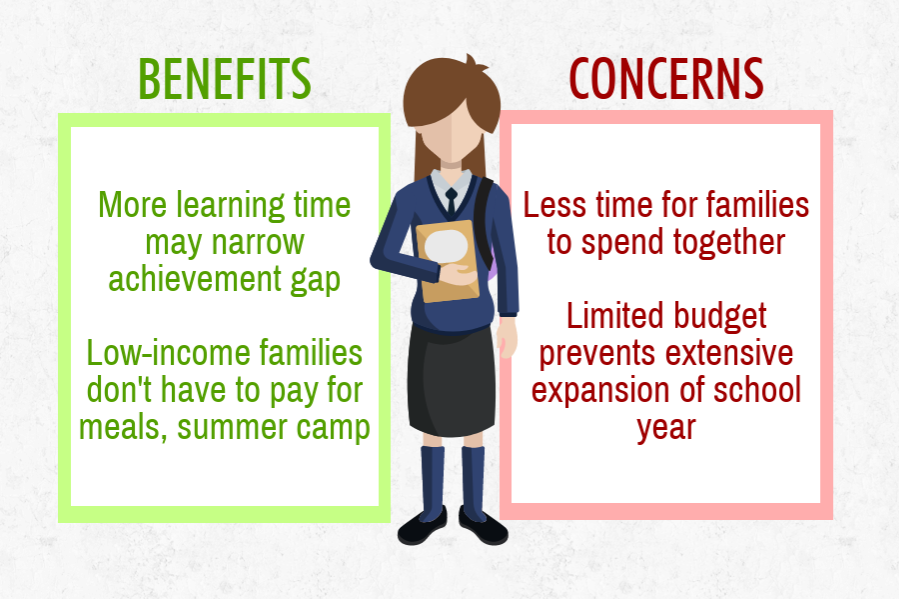Two county schools extend school year to narrow achievement gap
March 19, 2018
Two Silver Spring elementary schools plan to narrow the achievement gap between low and high-income students with a new initiative: a longer school year.
Montgomery County officials made addressing the achievement gap a top priority after Superintendent Jack Smith said it was his number one concern when appointed to his position in 2016. The plan aims to help economically disadvantaged students who tend to fall behind academically during summer breaks.
“We know that our children living in poverty are not doing as well on all measures of academic success, so having more time devoted to all of the subjects is a benefit,” BOE member Patricia O’Neill said. “Children lose some academic increments over the summer, so this is intended to help reduce the summer slide.”
While details are uncertain, officials said the plan would extend the end of the 2018-2019 school years for Arcola Elementary and Roscoe Nix Elementary to August, an increase of about six weeks. The schools were targeted because they have particularly high numbers of students who qualify for Free and Reduced Meals and are enrolled in ESOL programs.
“For those students who do not have the option to have a nuclear system at home, […] the school system becomes a very important component of their lives,” Montgomery County NAACP Parents’ Council co-chair Angela Jones said. “If they have a regiment, a routine of studying in school, statistics have shown you can really improve test scores, comprehension, interest in school.”
Board of Education president Michael Durso added that if the plan is successful, they will likely expand it to other county elementary schools.
“I think that if it was successful, it would be hard not to expand it to other schools,” Durso said. “However, the budget has to support it, so it would probably just be a handful [of schools].”
Discussions with parents, community members and teachers at the schools about the details of the plan are still ongoing. Ericka Hashi, president of Arcola’s PTA Board, said that she didn’t personally know enough details to comment but provided the PTA Board’s official statement.
“We appreciate that Arcola was chosen for this innovative program, and are eager to learn more about how it can benefit our student population,” the statement reads. “Programs like this help build an equitable community.”
So far, board members and community members predict that the parent reaction will be mixed. For families without summer plans, there may be an economic benefit.
“They’re not having to pay for daycare or summer camp, and in those schools we also provide for breakfast and lunch,” O’Neill said.
Families with summer plans, however, may be irritated by the calendar.
“I think there’ll be resentment at first,” Jones said. “And I’ll be honest with you, maybe more resentment from the parents, because it’s a change in the structure of your life. But I think if you can show the students how well they have done, they will respond to that. And the parents will too.”
Board members will make the final decision and budget allocation around the end of this school year, but they say they are optimistic about implementation.
“We don’t have a whole lot of money to play with for new things in the budget, but we do believe this is a good one,” O’Neill said.








